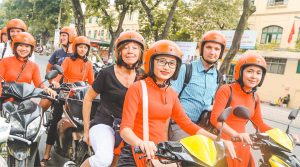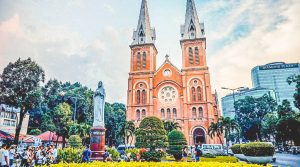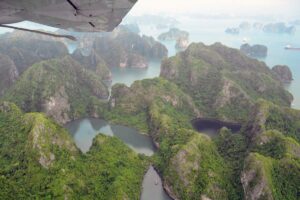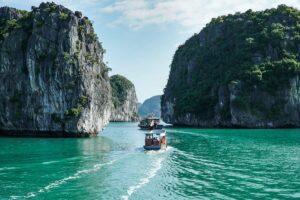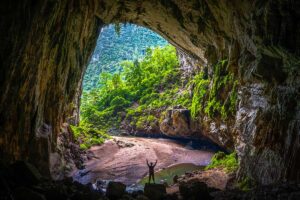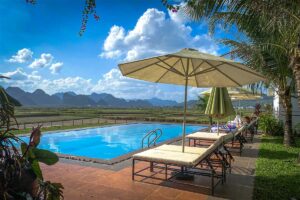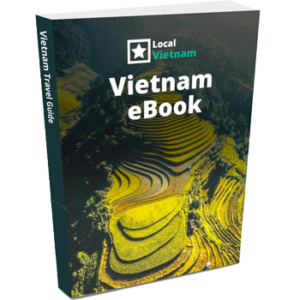Temples in Ho Chi Minh City hold a significant place in the lives of locals, serving as integral spiritual centers. While they are a fascinating attraction for travelers, it’s important to recognize their daily importance to the community. These temples are not merely static landmarks but are actively used by locals for prayer rituals, seeking blessings, and invoking good luck and fortune. Some temples were established by the early Chinese migrants, showcasing their rich heritage, while others represent unique religions and even played vital roles during the Vietnam War. Each temple has its own captivating story, inviting you to learn and appreciate the cultural tapestry of the city.
Religion, Buddhism & Temples in Ho Chi Minh City
1. Difference between pagoda & temple
A pagoda typically refers to a specific type of religious building associated with Buddhism. Pagodas are usually multi-tiered towers with curved roofs and serve as places of worship, meditation, and education for Buddhists. They often house relics, statues, and scriptures.
A temple is a broader term encompassing religious structures dedicated to various belief systems, including Buddhism, Taoism, Confucianism, and Hinduism. Temples can have different architectural styles and layouts, depending on the specific religious tradition they represent.
2. Religion
Religion in Ho Chi Minh City is diverse, with the majority (over 80%) practicing Vietnamese folk religion, characterized by ancestor worship and spiritual beliefs.
Buddhism has a following of around 10% and has influenced the local culture. Buddhist temples can be found throughout Ho Chi Minh City and serve as centers for Buddhist teachings, meditation, and communal activities.
After Vietnamese folk religion and Buddhism, Christianity holds a significant presence in the city as the third religion. While the number of Christians is not as high as the other two, there are several churches in Ho Chi Minh City, many of which date back to the colonial era.
Hinduism is rare, mainly observed by the Balamon Cham people, one of the surviving non-Indic indigenous Hindu groups in Vietnam.
3. Temples in Ho Chi Minh City
Most temples in Ho Chi Minh City serve as focal points for Vietnamese folk religion, where locals seek blessings, guidance, and protection from their ancestors and deities.
During special occasions like Tet New Year and other significant dates in the lunar calendar, temples become bustling centers of activity, with worshippers offering prayers, burning incense, and making offerings to ensure good luck and fortune for the year ahead.
You can also find a lot Chinese influences, especially in the vibrant Chinatown area, you’ll find temples dedicated to various deities and ancestral worship.
1. Jade Emperor Pagoda
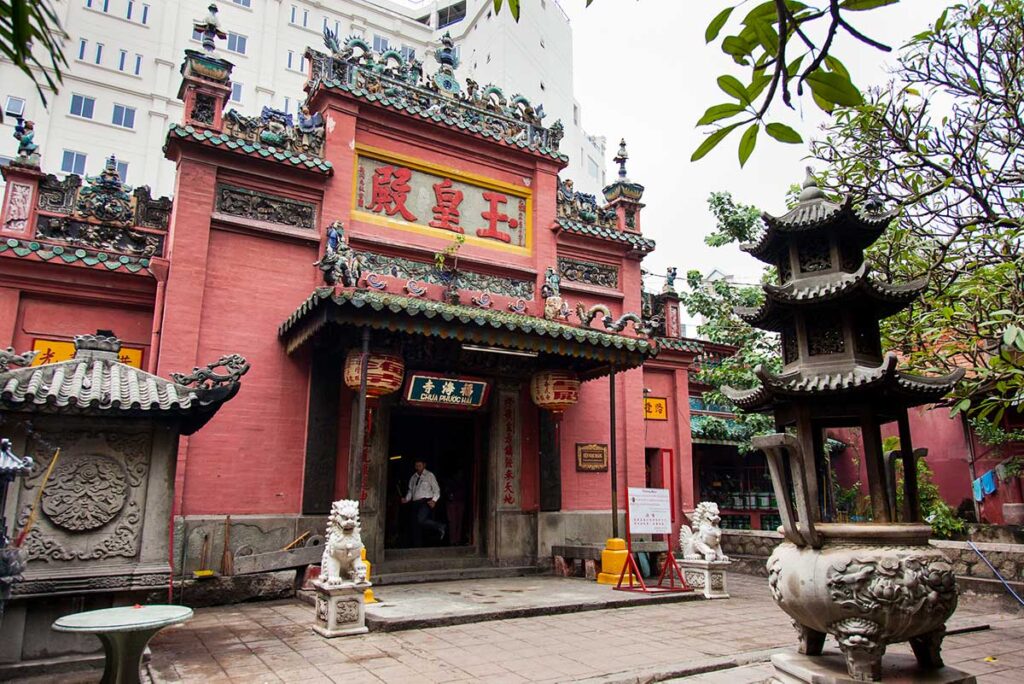
The Jade Emperor Pagoda is one of the most popular temples in Ho Chi Minh City, located in the city center of District 1. This beautiful pagoda is renowned for its ornate architecture and tranquil ambiance. Notably, it gained global attention when it welcomed a special guest – President Barack Obama – during his visit to Vietnam in 2016.
2. Thien Hau Temple
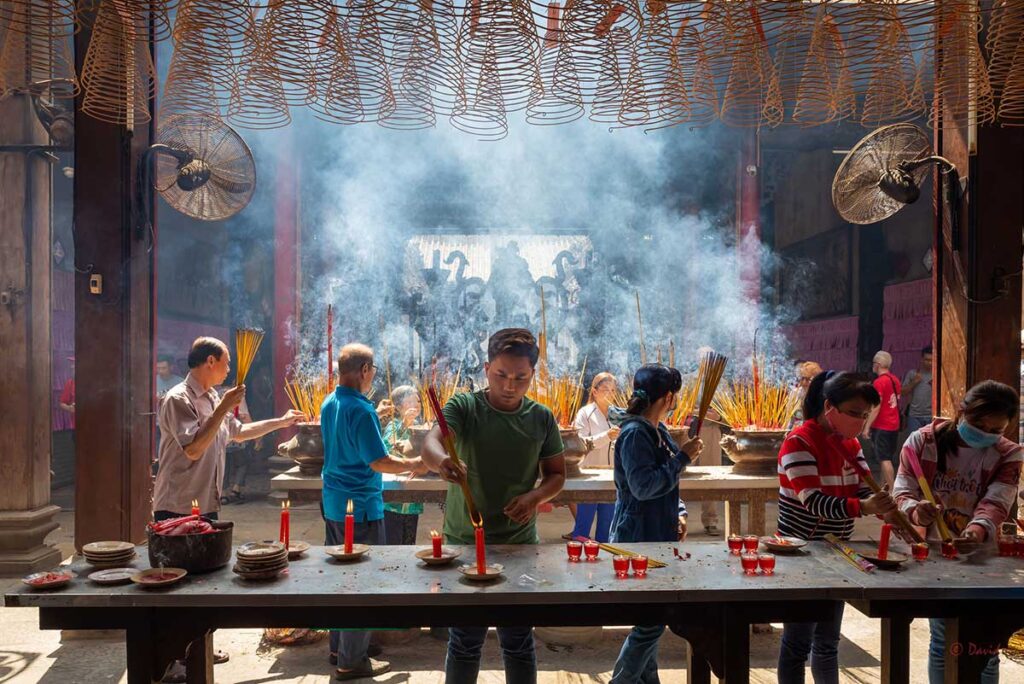
Situated in Chinatown, the Thien Hau Temple is a significant religious site with roots dating back to the 17th century. It serves as a spiritual hub for the Chinese community in Saigon and showcases stunning architectural features. Inside the temple, you can marvel at the intricate incense rings that hang from the ceiling/.
3. Mariamman Hindu Temple
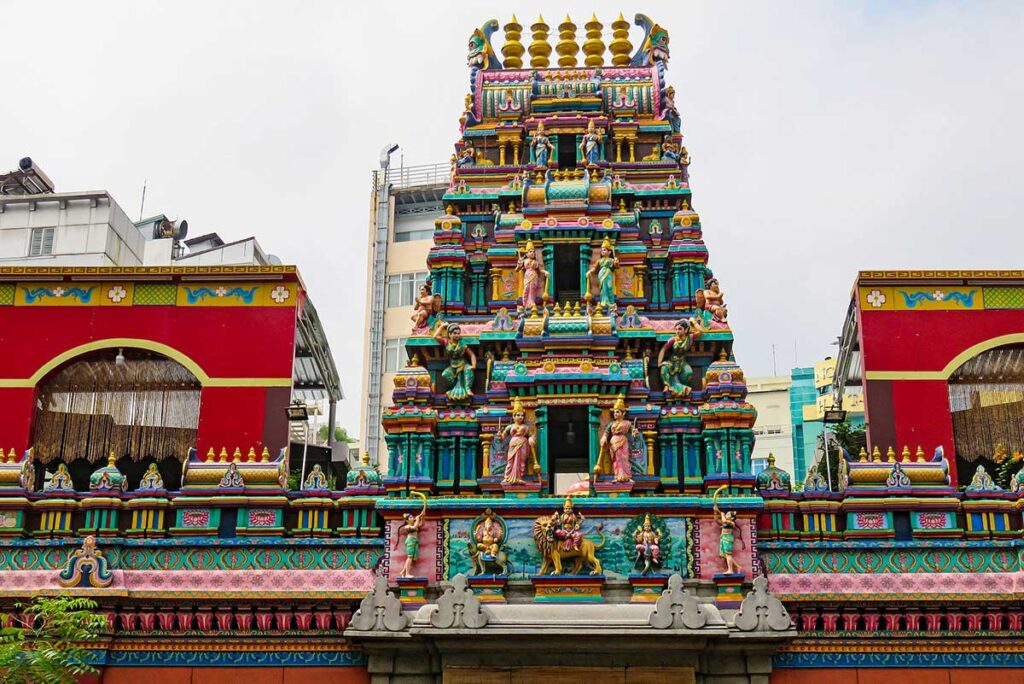
The Mariamman Hindu Temple stands as one of the few Hindu temples in Ho Chi Minh City, representing the vibrant Tamil community and their religious practices. This temple is known for its vibrant and colorful decorations, depicting various Hindu deities. It offers visitors a glimpse into Hindu culture and traditions within the city.
4. Giac Lam Pagoda
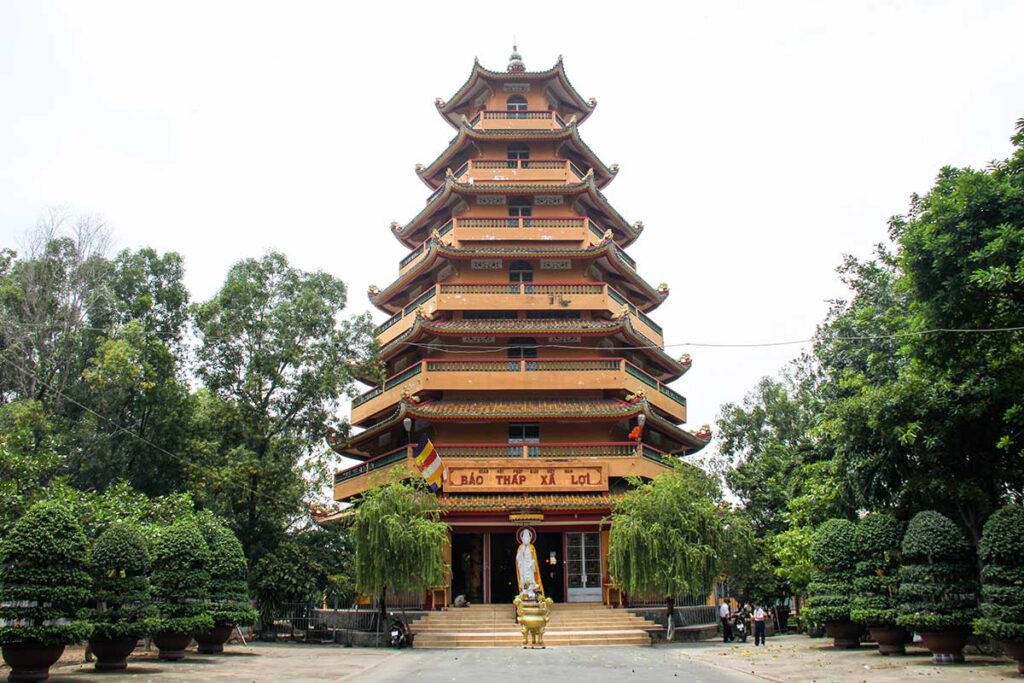
With a history spanning over 300 years, the Giac Lam Pagoda holds great cultural and architectural significance. Constructed in 1744 by a Chinese monk, it showcases a combination of Vietnamese and Chinese architectural styles. The pagoda’s standout feature is its 32-meter multi-story stupa, which is adorned with intricate carvings and serves as a symbol of enlightenment.
5. Cao Dai Temple
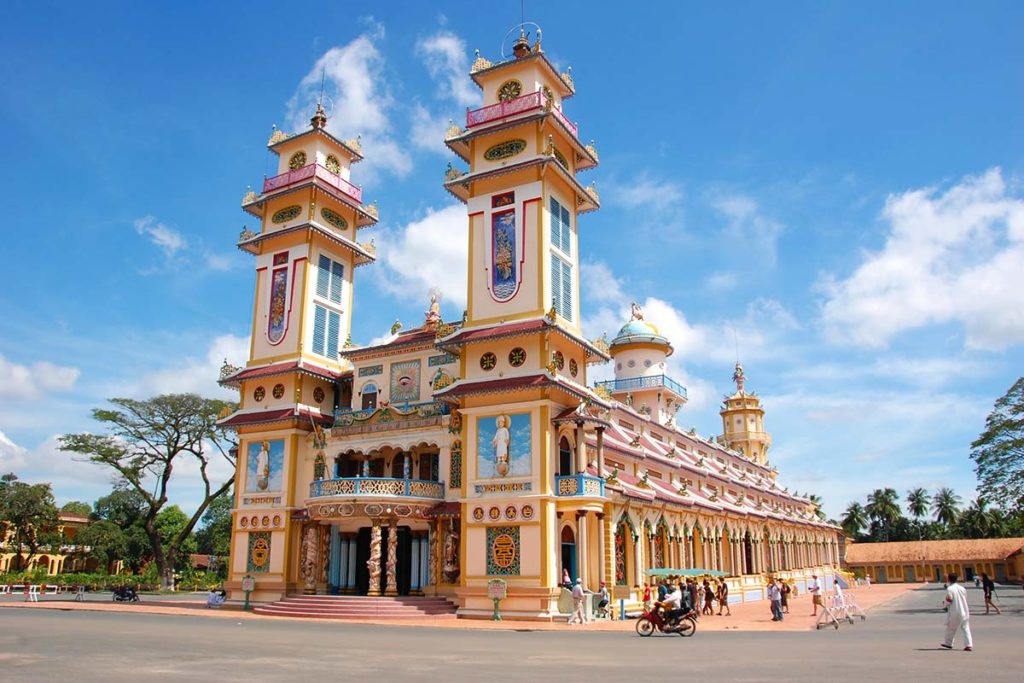
Located approximately 90 kilometers from Ho Chi Minh City in Tay Ninh, the Cao Dai Temple is the center of the unique Cao Dai religion. The temple’s vibrant and colorful exterior reflects the religion’s diverse influences, combining elements of various world religions. You can witness the daily praying ceremony, immersing yourself in the spiritual practices of this fascinating religion.
6. Buu Long Pagoda
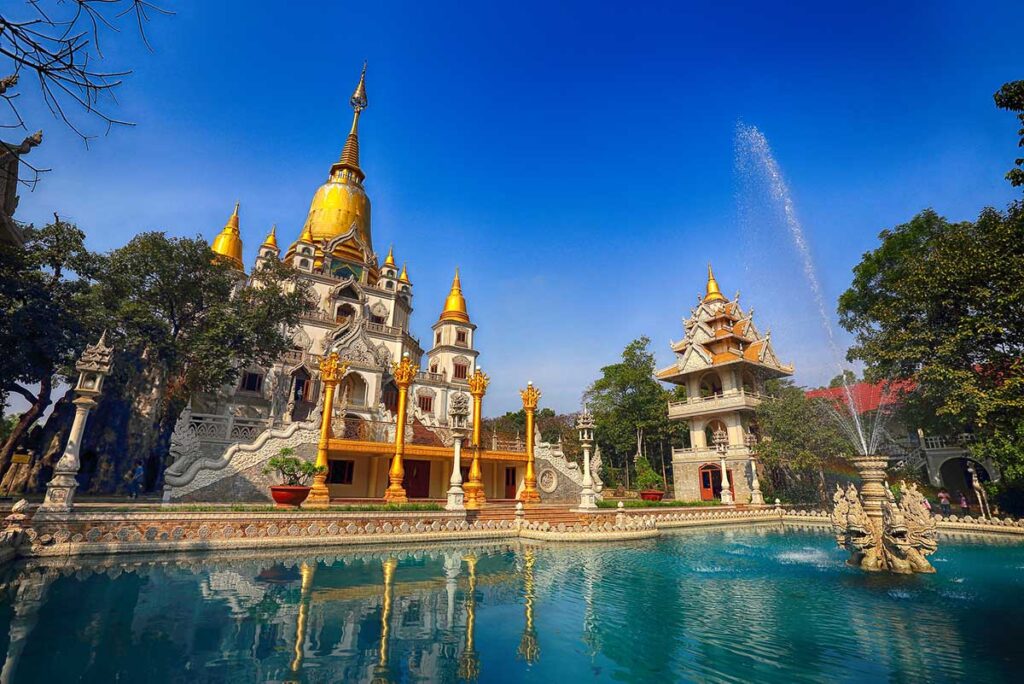
Buu Long Pagoda stands out from other temples, as it looks more like a temple you would see in Thailand. Nestled amidst lush greenery, this pagoda provides a serene and picturesque setting. The impressive 56 meter high stupa, with gold elements and the small pond reflecting the temple and clouds are making this a favorite spot for photography enthusiasts.
7. Vinh Nghiem Pagoda
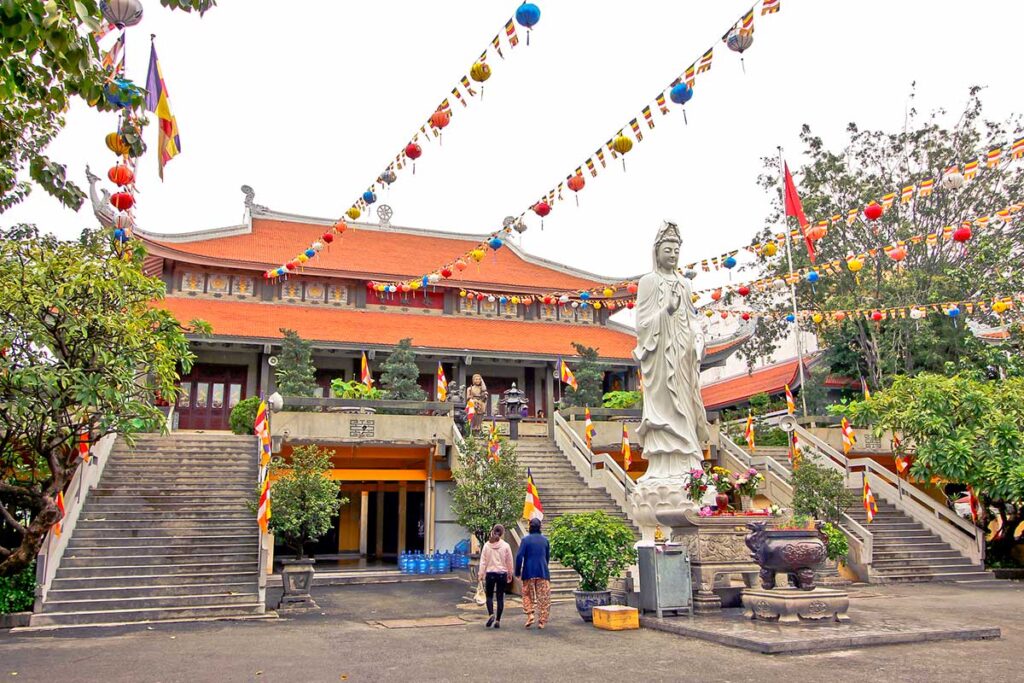
Regarded as one of the largest and most important pagodas in the region, Vinh Nghiem Pagoda is a significant religious and cultural site. It showcases exquisite Vietnamese Buddhist architecture, with intricate wood carvings and beautiful gardens. Visitors can explore the pagoda’s spacious grounds and experience the tranquility of Buddhist rituals and practices.
8. Xa Loi Pagoda
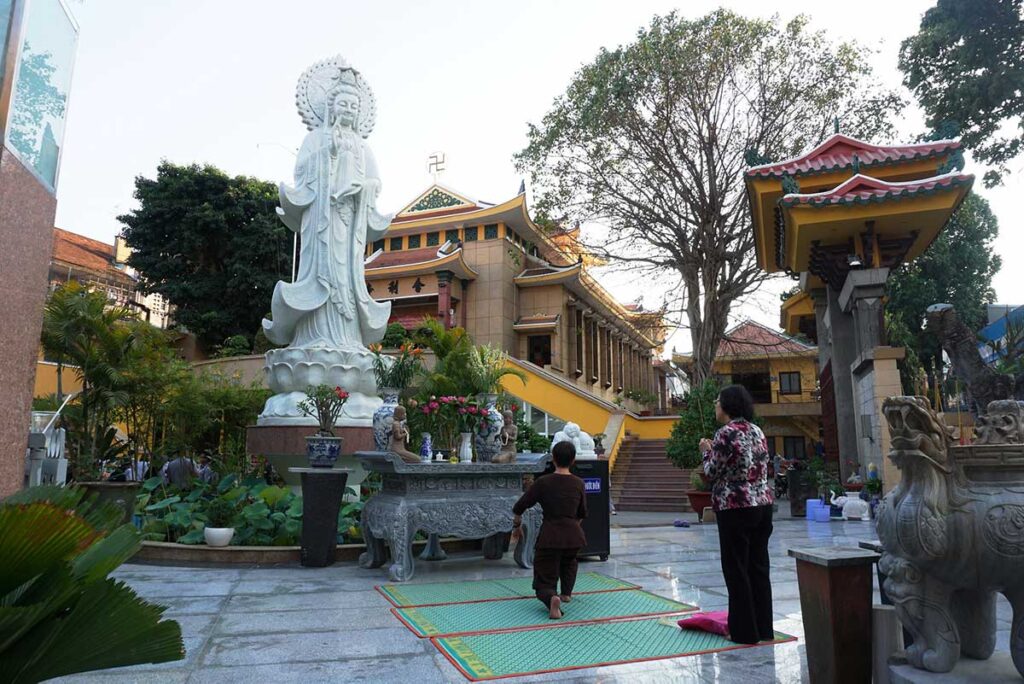
Xa Loi Pagoda holds a significant place in history as a focal point for Buddhist activism and opposition during the 1960s. It gained prominence when Thich Quang Duc, a Buddhist monk, set himself on fire in protest against religious discrimination. The pagoda itself was the target of a violent attack by government forces. Today, it stands as a symbol of resilience and spiritual resistance.
9. Nhi Phu Temple
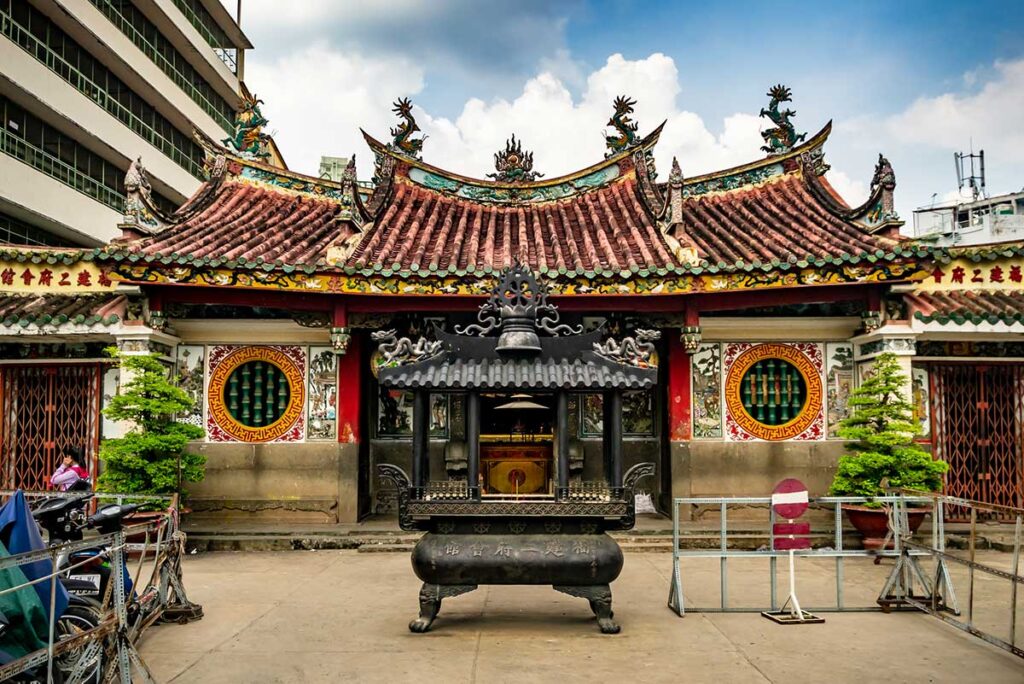
Located in Chinatown, Nhi Phu Temple, also known as Ong Bon Temple, was constructed in the early 18th century by Fujian immigrants. It is a significant religious site for the Chinese community, particularly during the Ong Bon Festival. You can admire the intricate architectural details and immerse yourself in the rich cultural traditions celebrated at the temple.
10. Phu Chau Floating Temple
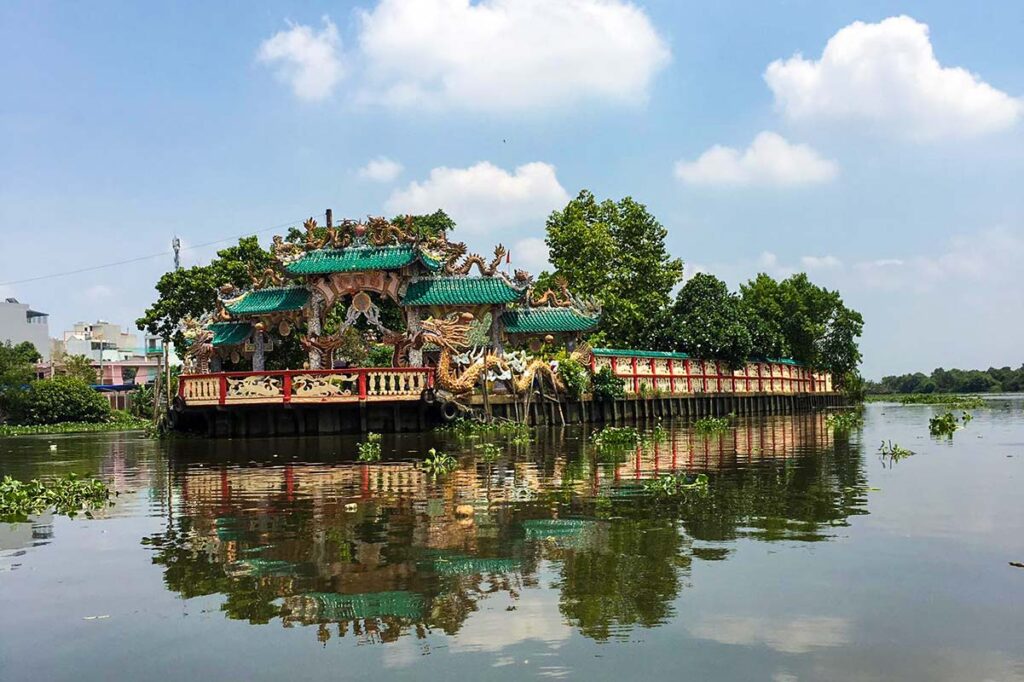
Situated on an island in the Vam Thuat River, Phu Chau Floating Temple is a truly unique religious site. Accessible only by boat, this temple offers you a chance to admire its stunning dragon statues, explore its compact complex, and experience the peacefulness of being surrounded by water and nature.
